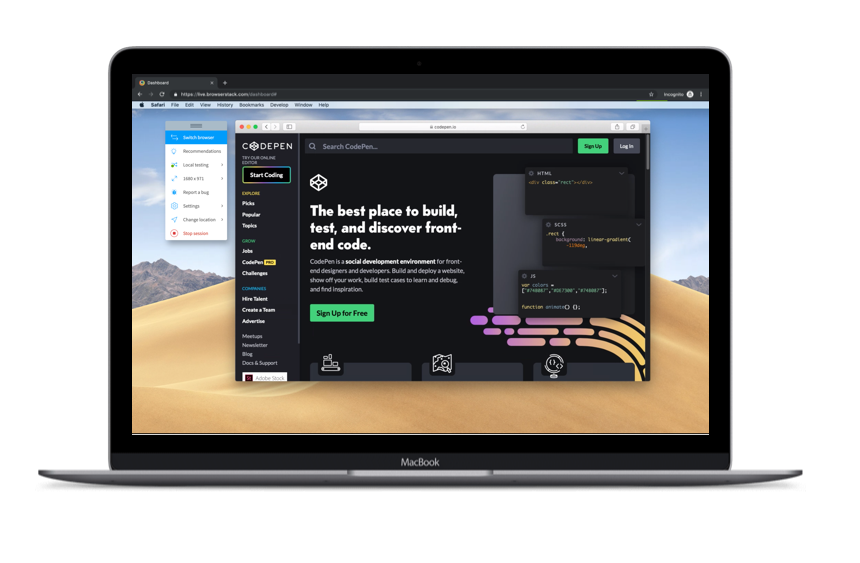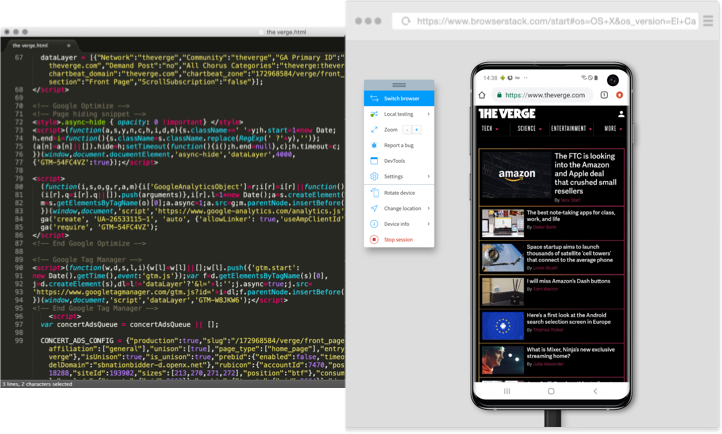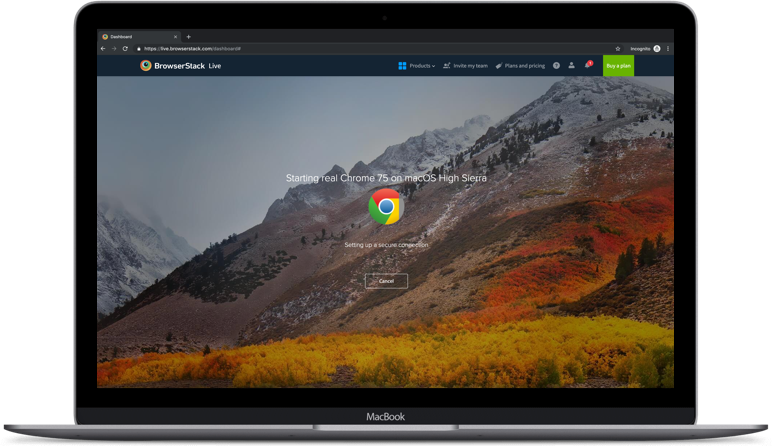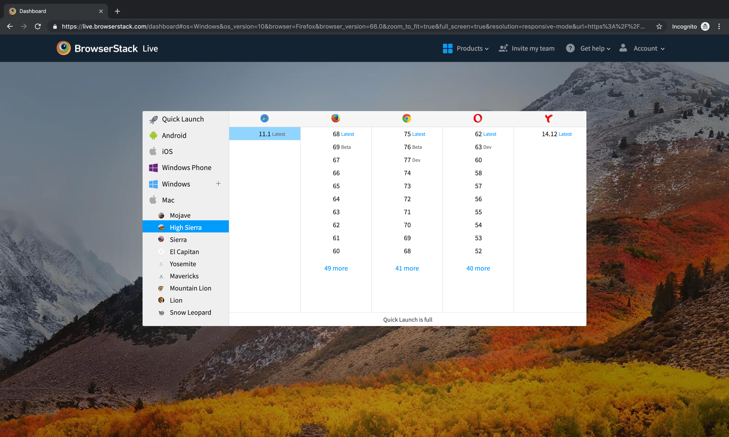Test on Virtual Browser
Virtual access to 3000+ Real Browsers and Devices. Say goodbye to your lab of PCs & Devices for virtual browser testing.
Signup & Start Testing for Free!
Trusted by more than 50,000 customers globally
Features
Real Browsers & Devices
We provide a varierty of virtual browsers on real machines for accurate results. Don’t compromise with Emulators & Simulators for virtual browser testing.
Test on Dev Environments
Test public & internal websites on development environments seamlessly, without the hassle of setup configuration.
No VMs or Setups
Start testing your website on a virtual browser online from any machine. No VMs to be maintained, no software to be installed; you just need a browser and the Internet to use BrowserStack.
3000+ Desktop Browsers
Test on a range of browsers like Edge, Chrome, Firefox, Safari, Internet Explorer on multiple platforms.
Frequently Asked Questions
A Virtual Browser is one that is separated physically from the underlying operating system of a specific device. A developer or a QA can access different browsers online like Chrome, Safari, Firefox, all of which are hosted on cloud servers.
Developers and QA testers prefer using virtual browsers for testing the performance of their web-applications on different browsers. Virtual browser testing enables a QA to ensure that a site is cross-browser compatible.
Often, developers and testers may opt for testing their website on virtual browsers that run on virtual machines. A virtual machine essentially replicates a different device on a user’s terminal. The virtual machine operates in a window, offering the end-user the experience of using it like any other device/OS. It is sandboxed from the host system, thus preventing it from interfering with the host computer.
Using a virtual machine for browser testing entails the following limitations:
- Virtual machines tend to be slow, which makes testing more time-consuming than it needs to be.
- Virtual machines can only mimic a device, but cannot replicate real user conditions like hardware and software configurations. They don’t let the tester monitor their website behavior in real-world situations.
A Real Device Cloud enables a developer or a QA to test their web-applications on physical devices. This allows developers to analyze accurate test outcomes. With a real device, they can view how the website operates in the hands of end-users in the real world.
A Real Device Cloud supports website or web app testing with natural gestures, battery consumption, GPS simulation, and IP geolocation. QA testers can share bugs with Developers via JIRA, Trello, GitHub, and Slack. They can also integrate with their favorite tools like Jenkins, CircleCI, etc. using CI/CD plugins
BrowserStack provides instant access to 3000+ browsers and real devices. Get Started Free with Virtual Browser.



